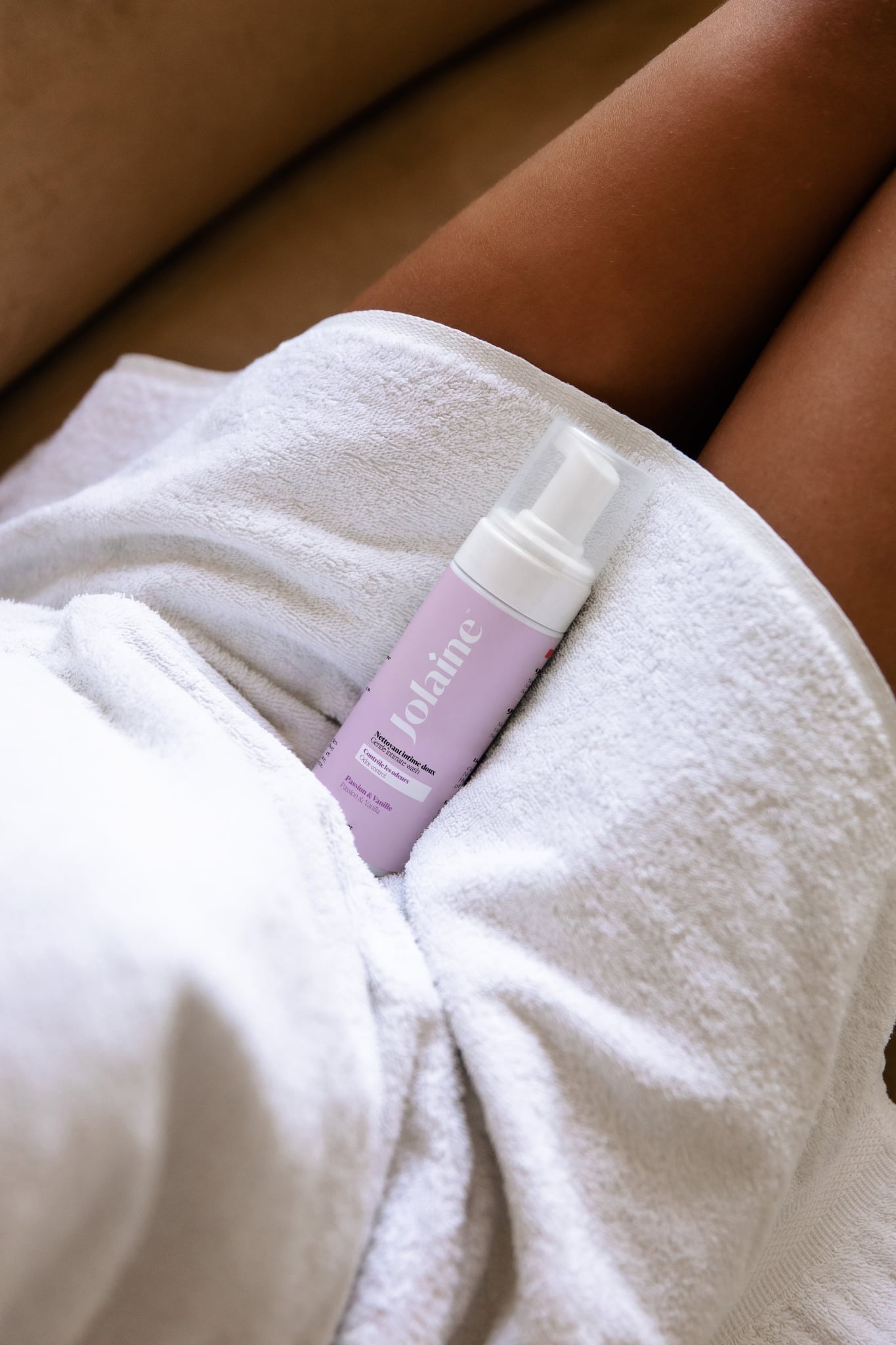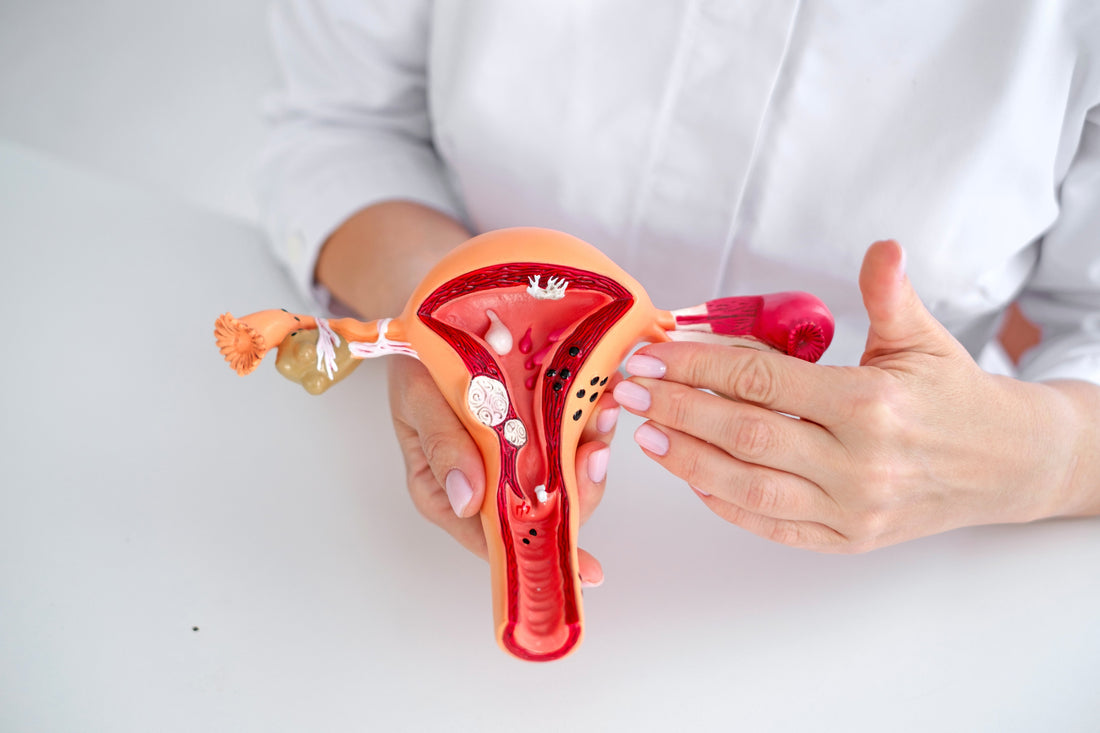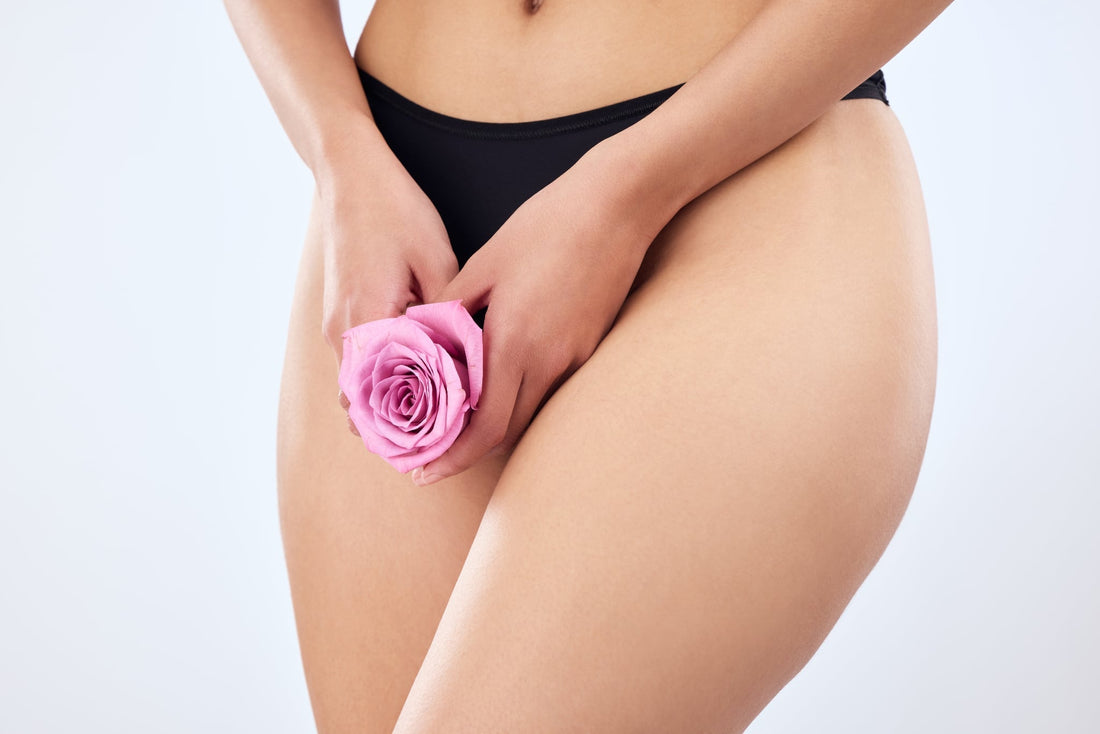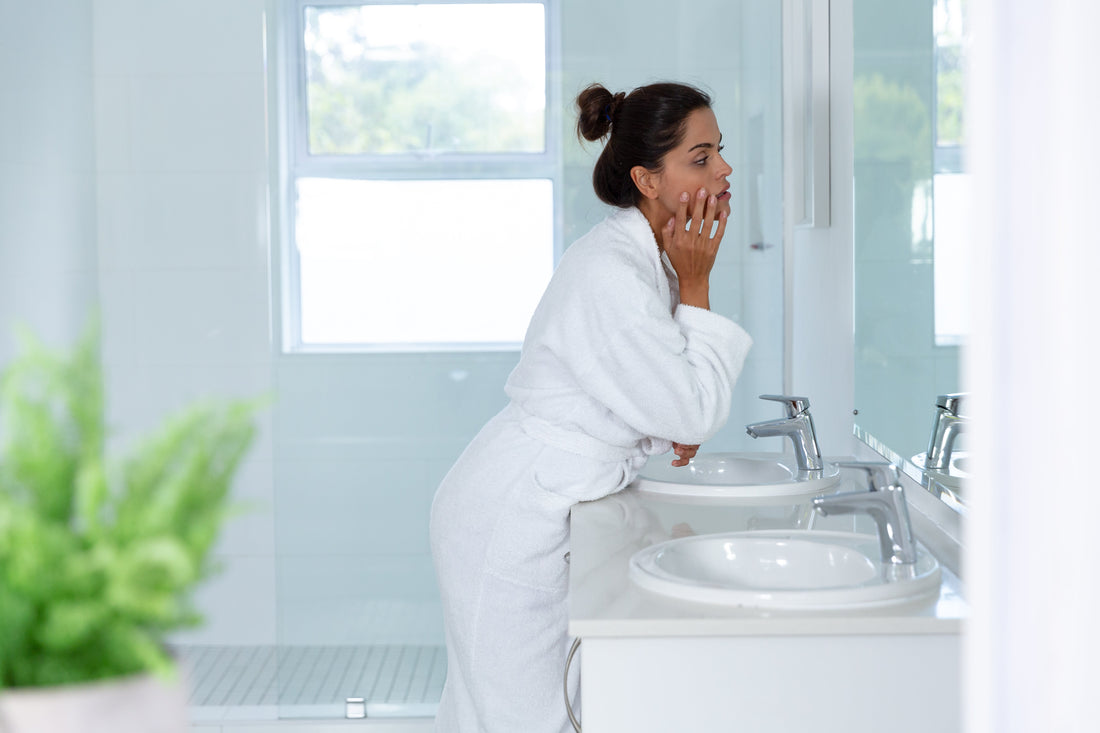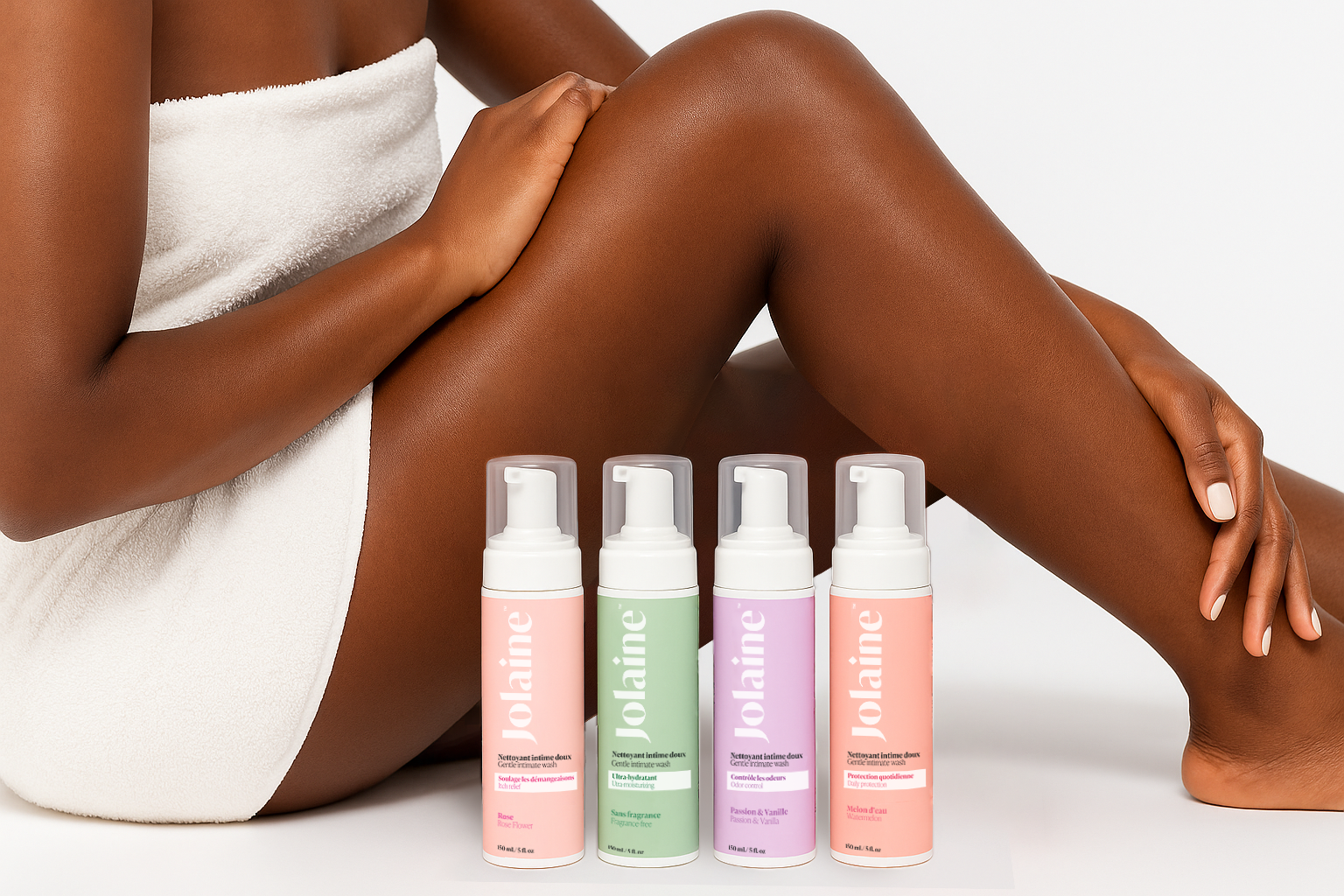Vaginal dryness: understand, soothe and act naturally
When the vagina's natural lubrication diminishes, discomfort sets in. This phenomenon, common among women, is called vaginal dryness.
It can cause burning, itching, pain during intercourse, and sometimes even light bleeding.
It can happen at any age. It's not inevitable. You first need to understand why it happens.
Why does the vagina become dry?
The role of hormones
Estrogen helps vaginal tissue stay supple and well-hydrated. When these hormones drop—during menopause, after childbirth, or during breastfeeding—the lining thins.
It becomes less elastic. And it produces less lubrication. This is the most common cause.
The effect of intimate products
Many gels, soaps, and foams sold in pharmacies contain harsh ingredients. These include:
- Parabens
- Sulfates
- Artificial Fragrances
- Chemical preservatives
These compounds can disrupt the vaginal flora. They alter the pH and dry out the intimate area.
Vaginal douching
They're often touted as "hygienic." But in reality, they disrupt the balance of the vaginal microbiota. They eliminate good bacteria. The result? The vagina becomes more vulnerable and drier.
Stress
When stressed, the body produces more cortisol. This hormone disrupts other hormones, including those related to intimate hydration. In the long term, chronic stress can cause persistent vaginal dryness.
Food
Too much sugar. Too much alcohol. Too much coffee. Too many processed foods. Not enough water. Not enough healthy fats. All of this disrupts hormones. And hormones, as we know, directly influence vaginal hydration.
Certain medications
Some treatments have well-known side effects. Antidepressants, antihistamines, and even blood pressure medications can cause vaginal dryness. This is indicated in the package inserts.
Excessive hygiene
Overwashing the intimate area—or using the wrong products—makes matters worse. The vagina is autonomous. It cleans itself. Too much intervention, especially with unsuitable products, destroys the natural flora. And dries out the skin.
What can I do to relieve vaginal dryness?
Review your hygiene routine
Use a gentle intimate cleanser formulated without sulfates, fragrances, or parabens. The pH should be between 4.5 and 5.5, which respects the natural balance of vaginal flora.
💧 Recommended tip:
Try Jolaine Care's Ultra-Hydrating Intimate Foam. It's made with 99% natural ingredients, fragrance-free, and designed for sensitive skin.
This treatment is suitable during pregnancy, after childbirth, and even during menopause.
This cleanser contains date fruit extract, known for its soothing properties. It gently moisturizes without stripping the skin.
Use a natural lubricant
During sex, choose a water-based, chemical-free lubricant. Choose an organic one with simple, healthy ingredients.
Avoid lubricants containing glycol, perfumes, or dyes. These additives can irritate the vulva and increase dryness.
Hydrate from the inside out
Drink plenty of water. It's the foundation. Well-hydrated skin always starts with good overall hydration.
Add good fats to your diet:
- Linseed oil
- Nut
- Oily fish
- Lawyer
These foods nourish the mucous membranes. And therefore, the vulva too.
Calm stress
Chronic stress is a hormonal saboteur. Take time for yourself. Breathe. Walk. Sleep better.
Try meditation, yoga, or warm baths. Stress affects your intimate balance more than you realize.
Integrate supplements
Some supplements support vaginal hydration:
- Omega-3
- Vitamin E
- Vaginal probiotics
- Marine collagen
Ask a healthcare professional for advice before starting one.
Menopause and vaginal dryness: a common duo
During menopause, the ovaries produce less estrogen. This hormonal drop leads to a thinning of the vaginal walls. The vagina becomes drier.
This phenomenon is called vulvovaginal atrophy.
More than 50% of menopausal women suffer from it. But few talk about it.
Effective solutions:
- Vaginal creams based on local estrogens
- Natural treatments: soy, red clover, or wild yam extracts
- Hormone-free vaginal moisturizers
- Kegel exercises, to stimulate vascularization
Habits to adopt in daily life
- Wear cotton clothing, loose if possible
- Avoid daily panty liners
- Dry the vulva well after showering
- Limit prolonged exposure to heat or humidity
- Don't wash too many times for the sake of cleanliness
More softness = more comfort.
Recommended vs. Avoidable Products
✅ To be preferred
Jolaine Care Ultra-Hydrating (Natural Formula, pH Balanced)
Water-based bio-lubricants
Breathable cotton panties
Unscented sanitary napkins
❌ To avoid
Ordinary soaps
Scented gels
Chemical wipes
Synthetic underwear
Vaginal douching
Frequently Asked Questions
1. Is it normal to have a dry vagina?
Yes. It's common. But no, it's not to be tolerated. There are effective solutions.
2. Can the vulva be moisturized with a classic cream?
No. Body creams are not designed for this area. Use a suitable intimate care product.
3. Can vaginal dryness be prevented?
Yes. With a gentle routine, a good diet, sufficient hydration, and rest, your body will thank you.
4. What is the difference between moisturizer and lubricant?
A vaginal moisturizer is used daily. It restores natural moisture. A lubricant is used occasionally—for sexual intercourse.
5. Is hormone treatment necessary?
Not always. Natural products like Jolaine Care Foam and suitable lubricants are sufficient in many cases.
The final word
A dry vagina is neither shameful nor inevitable. It's a signal. Listen to it. Give it what it needs: softness, hydration, and natural care.
And above all, don't wait. Because the sooner you act, the sooner your comfort will return.
🌿 Discover natural products on Jolaine Care
📚 As a complement, read our complete guide to vaginal pH balance here .
Thank you for reading and being part of the Jolaine Care community, where every woman deserves to feel good, beautiful, and confident. 💕
For any questions, please do not hesitate to write to us at info@jolainecare.com.
✨ Follow us on social media to stay up-to-date with our latest news, tips, and inspiration:
📘 Facebook | 📸Instagram | 🎵 TikTok
Gently,
The Jolaine Care team 🌿


